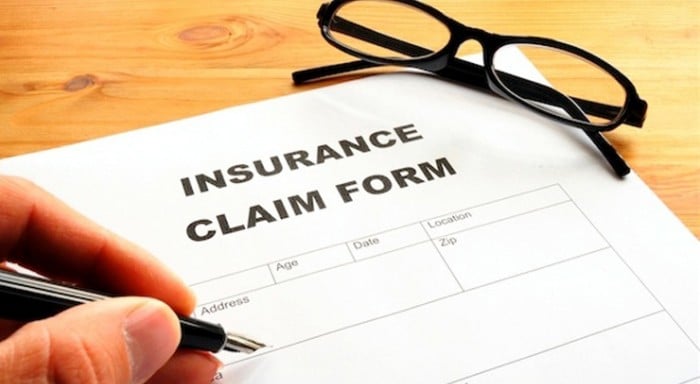What Happens If The Applicant Dies Before The Insurance Policy Is Issued?

Life insurance can provide financial protection for family members and loved ones when a person dies. Generally, an applicant can apply for a policy and be approved within a short period of time; however, occasionally, the applicant unexpectedly dies prior to the policy’s issuance. Depending on the language of the pending policy and/or the agent or insurance company’s actions (or inaction), the policy’s intended beneficiary may be able to recover policy benefits despite the policy never being issued. If you are considering hiring a life insurance claims lawyer in Louisiana, here are some things you may want to consider if the intended beneficiary finds herself in this unfortunate position:
The effective date of the policy:
The effective date of a policy can vary depending on the policy’s language: A binding receipt contract will generally be effective on the date the application is completed and the first premium is paid. The effectiveness of this type of policy is often conditioned on the applicant being designated as insurable (i.e. after a medical examination). Alternatively, a policy may be effective on the date of actual delivery of the policy. Some policies also mandate that the policy can only be delivered if and when the applicant is in good health.
Jump to a Section:
ToggleIf the policy is being converted from a group life insurance policy to an individual life insurance policy (i.e. after a termination of employment or after the insured loses his status as an eligible member of group life insurance) and the applicant completes the individual policy application and supplies the first premium within 31 days of termination, the policy will still be effective if the insured dies during the 31 day period. Under this provision, the beneficiary is eligible to receive the benefits owed under the individual insurance plan although the claim is actually payable under the group policy. This is true regardless of whether the application was completed or the premiums paid.
Conditional receipt of a life insurance policy:
If an applicant completes a life insurance policy application, pays the insurance premium, and would ultimately be approved for the requested policy, the insurance company may issue a conditional receipt, which provides insurance coverage to the applicant during the time the application is being reviewed. Notably, a conditional receipt may limit the amount of coverage and the length of time the conditional policy is available to the applicant.
A conditional receipt is generally dependent on the applicant being designated as an acceptable insurable risk, which is generally determined by the insurer’s predetermined standards. The applicant may be ineligible for a conditional receipt if the insurer determines that the applicant cannot be insured under an acceptable insurable risk even if the applicant is insurable as an increased risk (and generally at an increased premium).
An applicant’s designation as an acceptable insurable risk may or may not be dependent on a medical examination. Some insurers do not require a medical examination if the applicant is under a certain age. Further, the policy may designate the date the policy becomes effective even if the applicant has already been categorized as an acceptable insurable risk.
Alternatively, an applicant may be able to obtain temporary coverage while the application is being processed. Temporary coverage pays benefits to the intended beneficiary if the applicant dies during the application processing period. Temporary coverage may be preferable to a conditional receipt because it pays benefits regardless of whether or not the applicant is ultimately approved for the policy. Temporary coverage generally requires a completed insurance application, payment, and that the applicant be in reasonably good health (i.e. applicant has not been hospitalized in the last 90 days or experienced any serious diseases in the last two years).
If you are looking for a Louisiana life insurance claims lawyer near you, contact Charles Lavis of Lavis Law Firm – Personal Injury and Accident Attorney
Importantly, even if a policy is approved and issued, if the policy holder misleads the insurer or lies on their insurance application, the insurer may have a basis for denying benefits. For an insurer to deny benefits based on the applicant’s false statements, the insurer must prove that:
- A misrepresentation was made in the insurance application;
- The misrepresentation made in the insurance application was material to the insured’s risk; and
- The misrepresentation was made with the actual intent to deceive the insurer.
Unreasonable delay in processing a Louisiana insurance application

An insurance company is entitled to a reasonable amount of time to review an application for insurance and determine if they want to issue the requested policy. If the applicant dies before this review period has passed, the insurance company is generally not liable to the applicant’s estate or the intended beneficiary. However, assuming the applicant complies with the application requirements, the insurance company does have a duty to promptly consider the application for insurance.
If the Louisiana insurance company negligently fails to issue a policy or negligently fails to timely notify the applicant of the denial of the desired policy, the intended beneficiary of the policy or the applicant’s estate may still have a claim for policy benefits. If the insurance company fails to notify the applicant of its rejection of the application and fails to return the pre-paid premiums, the applicant can, for a reasonable amount of time, assume that his request for a policy was accepted. The length of time the applicant can maintain this presumption depends on the particular facts of each case (and may be guided by the amount of time specified by the insurer in the insurance application); however, at a certain point, applicants may have an obligation to determine the status of their application, and the failure to do so may be considered negligence.
Insurer Negligence
If the insurer fails to reasonably process the insurance application, the insurer may be stopped from denying the existence of a life insurance policy if the insurer’s negligence misled the applicant into believing that he was actually insured. Generally, the applicant will have to show an affirmative action by the insurer that prevented the applicant from obtaining insurance from another insurer and, as a result, had a detrimental effect on the applicant (i.e. the insurer’s negligence was the proximate cause of the applicant’s loss of insurance benefits, which would have been obtained but for the insurer’s negligence). This claim is based on the notion that the insurer’s negligence in issuing the policy caused the insured to lose the right to policy proceeds.
Notably, an insurer may also be liable for policy benefits when it creates a custom of accepting past due premiums, which leads the insured to believe that the policy remained in effect. This ground for recovery is also based on the theory of estoppel. Further, an insurance company can tacitly waive its policy’s conditions through its conduct. For example, an insurance company can waive the condition that the insured be in good health at the time of the policy’s issuance by retaining past-due premiums paid pursuant to the policy’s reinstatement provision for an unreasonable length of time.
While the insurance company does have a duty to act on an insurance application within a reasonable amount of time, what is considered reasonable is determined on a case-by-case basis. Additionally, the plaintiff has the burden of showing that the policy would have been issued but for the insurer’s negligent delay in processing the application for insurance.
Importantly, even if the insurance agent, and not the insurer, is negligent in notifying the applicant of the insurer’s denial of the policy, the insurer may still be liable. The insurance agent is a mandate of the insurer and thus, the insurer can be liable for the agent’s negligence.
Further, the plaintiff (i.e. the intended beneficiary or the applicant’s estate) must show that during the delay the insurable applicant would have applied with another insurance company and would have received coverage from another insurer. Thus, even if an agent or an insurer acts unreasonably in informing the applicant of the denial of insurance coverage, there is no liability if the applicant or his beneficiaries cannot produce evidence showing that the applicant would have applied elsewhere or that another insurance company would have issued a life insurance policy. Additionally, if the applicant fails to comply with the insurer’s policy requirements (i.e. submitting to a medical exam), the insurer’s will not be liable to the policy holder even if the policy was approved or denied outside the normal time periods.
Actions against a Louisiana insurance agent for failing to procure life insurance coverage:
A plaintiff may have an action against the insurance agent for failing to obtain the desired insurance coverage if the plaintiff can show that:
- There was an undertaking or agreement by the agent for the agent to obtain life insurance on behalf of the applicant;
- The agent failed to use reasonable diligence in obtaining the desired insurance and/or the agent failed to notify the client of the failure to obtain the desired coverage; and
- Because of the insurance agent’s actions, the client was warranted in assuming that he was properly insured.
Please note that the above information can vary depending on the specific language of your policy.
Contact an Experienced Louisiana Life Insurance Claim Lawyer Near You
If you are the intended beneficiary of a life insurance policy and have questions relating to the policy or policy application, please contact Louisiana Life Insurance Lawyers at Lavis Law Firm – Personal Injury & Accident Attorney.
Contact Us Directly
New Orleans Life Insurance Review
To describe the Lavis Law Firm as amazing would be an understatement! I was in an auto accident and even though the other person admitted fault, the insurance company still tried to escape full responsibility. My experience started off with his friendly phone staff. And one of the best parts is that I could speak to “HIM” personally! He was attentive, thorough, informative, easy to talk to, and extremely understanding. He was sure to keep in contact with me at every stage of the case, either by phone, email, or even text. There was not one question unanswered or decision made regarding my case without a full explanation and my approval. He even offered to meet me at whatever location was easiest for me, including my home. I was referred to him and I definitely see why. From start to finish, he was a major advocate for me. I know that I was not his only client but he sure makes you feel like it. I HIGHLY RECOMMEND The Lavis Law Firm! I hope not to need an attorney again for anything but if I happen to, there’s only one number to call. I will forever be grateful for Mr. Charles Lavis.
Zyiesha Marshall-Carter on Google
⭐️⭐️⭐️⭐️⭐️
Read More Testimonials on Google

